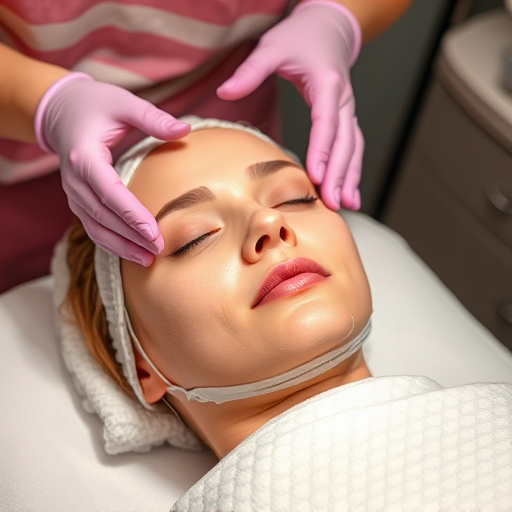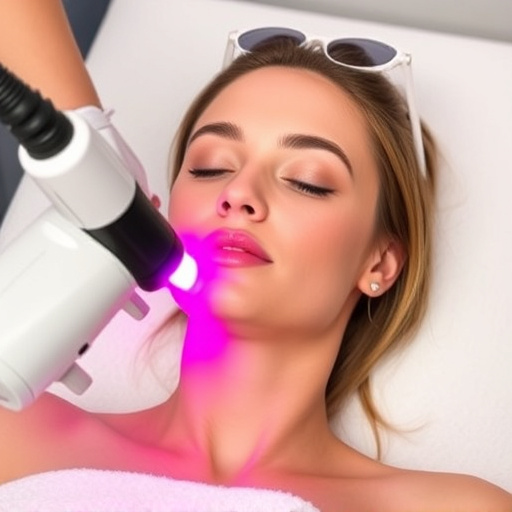Uncover FDA-Approved Skincare Solutions for Acne & Wrinkles

Understanding FDA approval is key when considering cosmetic procedures, as it ensures safety and eff…….
In an era driven by technological advancement and medical innovation, the role of regulatory bodies like the U.S. Food and Drug Administration (FDA) is more critical than ever. At the heart of this regulatory framework are FDA approved procedures, a term that encompasses a wide range of medical practices, treatments, and technologies scrutinized and endorsed for safety and efficacy by the FDA. This article delves into the intricate world of FDA approved procedures, exploring their definition, global impact, economic implications, technological advancements, policy landscape, challenges, successful applications, and future prospects. By examining these aspects, we gain a comprehensive understanding of how these procedures shape healthcare delivery worldwide.
FDA approved procedures refer to medical practices, treatments, or technologies that have undergone rigorous evaluation by the FDA to ensure their safety, efficacy, and quality. This approval process involves extensive clinical trials, data analysis, and adherence to established guidelines. The core components include:
Historically, the FDA’s role evolved from ensuring food safety in the 1900s to regulating pharmaceuticals, medical devices, and, eventually, procedures themselves. This evolution reflects increasing public demand for safer, more effective healthcare solutions.
The influence of FDA approved procedures extends far beyond U.S. borders, shaping global healthcare landscapes:
Key Trends:
| Trend | Description | Impact |
|---|---|---|
| Digital Health Integration | Increasing use of digital technologies to enhance procedure delivery and monitoring. | Improved patient outcomes, cost savings |
| Personalized Medicine | Tailoring treatments to individual genetic profiles. | Enhanced efficacy, reduced side effects |
| Telemedicine Expansion | Growing acceptance of remote healthcare services. | Increased access to care, especially in underserved areas |
The economic landscape surrounding FDA approved procedures is complex and multi-faceted:
Technological breakthroughs are revolutionizing FDA approved procedures:
Future Potential: The integration of advanced technologies like 3D printing for customizable implants and advanced robotics could further transform procedural delivery.
Key policies and regulations guide FDA approved procedures:
These policies foster a robust yet flexible regulatory environment, encouraging innovation while safeguarding public health.
Despite its critical role, the FDA approval process faces challenges:
Proposed Solutions: Implementing streamlined review processes for certain types of devices, enhancing collaboration between industry and regulators, and leveraging digital technologies for more efficient surveillance are potential strategies to address these issues.
A leading medical device manufacturer developed a new generation of orthopedic implants with enhanced biocompatibility and improved load-bearing capabilities. Through extensive preclinical testing and clinical trials, the company obtained FDA approval for several products. This success demonstrated the effectiveness of advanced materials and design in improving patient outcomes, leading to increased adoption by orthopedic surgeons worldwide.
A startup focused on developing a remote monitoring system for patients with chronic conditions in underserved rural areas. By leveraging telemedicine technology, they enabled healthcare providers to remotely track vital signs and deliver personalized care plans. The FDA’s supportive policy environment facilitated rapid approval, allowing the company to expand access to quality healthcare services for previously unreachable communities.
The future of FDA approved procedures is filled with potential:
FDA approved procedures represent the intersection of medical innovation, regulatory oversight, and patient safety. From global adoption trends to technological advancements, these procedures are transforming healthcare delivery worldwide. While challenges remain, ongoing policy reforms, collaborative efforts, and innovative solutions promise a future where FDA approved procedures continue to enhance lives, advance medicine, and drive economic growth.
Q: What is the approval process for a new medical procedure?
A: The process involves submitting an Investigational New Drug (IND) application with preclinical data, followed by phase I, II, and III clinical trials demonstrating safety and efficacy. After successful completion, a New Drug Application (NDA) is submitted for FDA review.
Q: How does the FDA ensure the safety of medical procedures?
A: The FDA employs rigorous evaluation processes, including preclinical testing, clinical trials with strict protocols, and post-market surveillance to identify rare adverse events.
Q: Can patients access FDA approved procedures in other countries?
A: Yes, many countries adopt similar regulatory standards as the FDA, allowing for global accessibility. However, local regulations, healthcare infrastructure, and cultural norms may influence implementation rates.
Q: What role does technology play in modern FDA approved procedures?
A: Technology drives innovation across various stages, from advanced diagnostics to robotic surgery systems and AI-assisted treatment planning, enhancing precision, efficiency, and patient outcomes.

Understanding FDA approval is key when considering cosmetic procedures, as it ensures safety and eff…….

The future of skincare is driven by FDA-approved procedures prioritizing safety and effectiveness, e…….

The U.S. FDA ensures skincare safety through rigorous testing of cosmetic treatments. By 2025, non-i…….

The U.S. FDA regulates skincare products, setting safety and efficacy standards through rigorous tes…….

Consumers increasingly seek safe and effective skincare, with the FDA ensuring market accessibility…….

Understanding FDA approval process for medical procedures like microneedling, skin tightening, and w…….

The FDA sets standards for skincare safety through rigorous evaluations, approving procedures like s…….

The FDA regulates skincare products and procedures, setting standards for safety and efficacy throug…….

Understanding FDA-approved procedures is key for safe and effective cosmetic or medical treatments,…….

The U.S. FDA strictly regulates non-surgical treatments like laser hair removal through a rigorous a…….